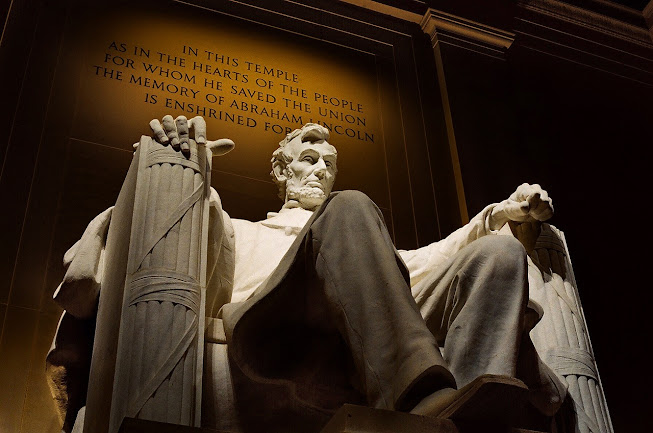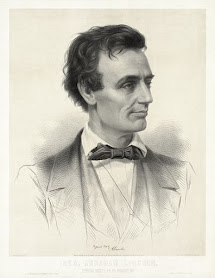Review by Bill Doughty––
The shadow of Lincoln looms over some politicians who restrict certain books and the teaching of slavery. Learning about American history, both shiny and tarnished aspects, is key to a strong republic and successful self-government, as suggested in Diana Schaub’s “His Greatest Speeches: How Lincoln Moved the Nation” (St. Martin’s Press, 2021).
Lincoln wanted to place slavery “in the course of ultimate extinction.” He wanted progressive perpetuation of the nation in the face of disintegration. He called for a continued pursuit of “a more perfect union.”
This book is essential to understanding the reasons for (1) the insurrection of January 6, 2021, (2) the rise of white nationalism and violent extremism, (3) threats of a potential autocracy, and (4) the need to defend the Constitution and protect the rule of law, voting rights and personal freedoms.
In his Lyceum address, Lincoln said, “The lawless in spirit are encouraged to become lawless in practice; and having been used to no restraint, but dread punishment, they thus become absolutely restrained. Having ever regarded Government as their deadliest bane, they make a jubilee of the suspension of its operations; and pray for nothing so much as its total annihilation.”
He called such lawlessness “Mobocratic spirit,” in which anger makes restraint more difficult. Lincoln saw “increasing disregard for the law” and risk of despotic autocracy that “fits the very definition of arbitrary rule: unlimited, unrestrained, capricious,” Schaub writes. “By contrast, these constitutionally articulated parts divide and check power through their complex relation to one another.”
 |
Master Chief Marcious Kelley and another Sailor assigned to the Nimitz-class aircraft carrier USS Abraham Lincoln (CVN 72) visit the Martin Luther King Jr. Memorial in Washington D.C., January 27, 2017. USS Lincoln organized a tour for 23 Sailors of the Lincoln Memorial, the Martin Luther King Jr. Memorial and the African-American History Museum. (Matthew Herbst)
Schaub compares Martin Luther King Jr.’s nonviolence with the concept of peaceableness: “Peaceableness is a demanding standard –– more demanding than non-violence since it applies to the attitude of those gathered, not just their actions.” Schaub also analyzes Lincoln's philosophy with the thinking of Frederick Douglass and Malcolm X, more prone to condoning violence than preaching peaceableness.
The Lyceum speech ties back to another great American, President George Washington, and specifically Washington’s Farewell Address and warnings, not only of threats from other nations, but also of divisions from within. Schaub writes:
“Washington warns against sectionalism that would ‘tend to render Alien to each other those who ought to be bound together by fraternal affection’; Lincoln worries about ‘the alienation of their affections from the Government’ –– a generalized, rather than sectional, alienation felt by ‘the American People.’ Washington announces in the strongest terms that compliance with the law and the Constitution is ‘sacredly obligatory upon all’; the lesson in democratic theory is reiterated by Lincoln and supplemented with his call for a ‘political religion’ or ‘reverence’ for the Constitution and laws. Washington inveighs against the dangerous effects of ‘the strongest passions’ and the ‘cunning, ambitious and unprincipled men’ who would ‘usurp for themselves the reins of Government’; Lincoln, too, disparages passion –– calls it ‘our enemy’ –– and puts us on guard against the unbounded ambition of the republic-destroyers.”
The Founders, including Washington and especially Hamilton and Madison, were “aware of the power latent in the love of fame” so they set up a complex system of checks and balances to protect against the rise of a narcissistic ego-driven autocrat. The checks include the legislative, judicial, and executive branches as well as the balance of national/federal and state power.
 |
| Navy Recruiter PO Jasmine Allen (CPO Todd Macdonald) |
In order to progress from slavery, insurrection, racism and discrimination toward that "more perfect union," one needs faith in reason and critical thinking, not in passion and pure emotion.
Lincoln and Washington used the word “passion” in its original meaning, that of strong feelings of a negative nature. Think: January 6th rioters and insurrectionists.
Lincoln said, perhaps presciently, “Passion has helped us [in the Revolutionary War], but it can do so no more. It will in future be our enemy.”
“Passion,” to Lincoln, meant more hate, revenge, and fear –– more divisiveness. He even eschewed compassion, choosing instead to approach issues with logic.
According to Schaub, “Lincoln sought always to lift the slavery debate to the level of principle and unimpassioned reason, avoiding the dangerous ground of compassion, anger, and blame.”
In Lincoln’s case, the strong passions of the mob included vigilantism and lynchings that were happening especially in the South in the aftermath of the Civil War. His description of black bodies hanging from trees like so much Spanish moss reminds people of the Billie Holiday song “Strange Fruit,” Schaub observes.
Lincoln believed in obeying even “bad laws” until they could be changed. That is where his and MLK’s philosophy splits. In “Letter from a Birmingham Jail,” King calls for disobeying unconscionable laws but, importantly, disobeying them openly and lovingly.
Yet, Schaub presents an example of Lincoln disobeying a law when the standard for doing so was “too intolerable.” It occurred during the war when the widow of a white officer who died while commanding African American troops pleaded with President Lincoln. She asked for him to help “widows” of fallen black service members who hadn’t been able to marry before going off to war and so were ineligible for death benefits for themselves and their children. Lincoln stepped in “as if there had been a legal marriage” and arranged for help to the widows and orphans.
Schaub quotes Martin Luther King Jr. again later in “His Greatest Speeches”: “injustice anywhere is a threat to justice everywhere.” Schaub writes, “Aware of the inescapable reciprocity of rights –– Lincoln always insisted that it was imperative to restore the belief in universal equality for the sake of white citizens, as well as for the sake of the enslaved people.”
Schaub notes that Lincoln and King are “often viewed as our nation’s greatest moral lights.” The two great men would probably agree on Lincoln’s recommendations for preventing mobocracy and resulting autocracy.
Lincoln’s solutions, as revealed by Schaub:
— Have “reverence for the laws,” recognizing usurpation (wrongfully seizing power) is suicide.
— Win public sentiment: with it, everything; without it, nothing.
— Harness personal ambition rather than try to suppress it; steer ambition to the duties of office and the public good.
— Recognize two fundamental blessings in the United States: Nature and Government: “Both legacies must be transmitted to the next generation.”
— Be law-abiding, not out of fear but out of reverence.
— Engage and prove the unproven proposition of the Founders, namely “the capability of a people to govern themselves.” Vote.
— Become an educated citizenry; more education, more books! [It was remarkable and memorable when former CNO Adm. Jon Greenert unveiled his take on the Navy’s Reading Program in 2012 by standing in front of hundreds of books –– all related to Abraham Lincoln.]
“In his first appearance on the political stage, announcing his candidacy for office in 1832, Lincoln endorsed public education so that citizens might, through the reading of history, ‘duly appreciate the values of our free institutions.’ He makes a similar linkage here, telling us that the system of political institutions serves ‘the ends of civil and religious liberty’ and that the whole elaborate arrangement requires ‘general intelligence’ on the part of the people.”
Lincoln refers to a tangible “fabric of freedom.”
In “His Greatest Speeches,” Schaub dissects not only the Lyceum speech, but also the most famous American speech, The Gettysburg Address, as well as The Second Inaugural Address, where Lincoln says –– relevant to today’s controversies about what is taught in schools –– achievement of “a just and lasting peace among ourselves” requires reconciliation through what Schaub calls truth-telling and an inquiry into the cause and purpose of the war.”













